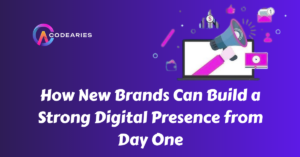Issues like ticket scalping, counterfeiting, and lack of transparency have long plagued the global concert and live event industry. Traditional ticketing systems, dominated by large middlemen and platforms, often leave fans frustrated and artists shortchanged. As blockchain technology continues to reshape various industries, it has made significant inroads into ticketing systems. The global online event ticketing market size was valued at USD 55.40 billion in 2022 and is expected to grow at a CAGR of 6.0% from 2023 to 2030. Blockchain-based ticketing promises to offer secure, transparent, and tamper-proof solutions that can redefine the concert experience for both fans and organizers.
In this article, we will explore the potential of blockchain technology in concert ticketing, its benefits over traditional systems, and its impact on the future of live events.
Blockchain and Its Application in Ticketing
Blockchain, widely recognized for powering cryptocurrencies like Bitcoin and Ethereum, functions as a decentralized, unalterable digital ledger. Its decentralized structure eliminates the need for intermediaries, ensuring transparency and heightened security. When applied to concert ticketing, blockchain eliminates central authorities from the equation, offering a more secure, efficient, and direct process for ticket issuance and management.
Blockchain in Event Ticketing: The Evolution
Initially conceived as a solution for financial transactions, blockchain has expanded into various sectors, including event management. Blockchain ensures secure issuance of digital tickets, curbing fraud, scalping, and counterfeiting, while enabling event organizers to manage ticket distribution seamlessly.
The Role of Blockchain in Digital Ticketing
Blockchain allows for the creation of unique, traceable, and verifiable digital tickets tied to specific user identities. These tickets can’t be duplicated, and their ownership and resale history are securely tracked on the blockchain. From the moment of purchase to event entry, blockchain streamlines the ticket’s entire lifecycle, offering a frictionless experience for both fans and organizers.
Challenges in Traditional Ticketing Systems
To understand the appeal of blockchain-based ticketing, it’s crucial to first examine the flaws in traditional systems.
- Scalping and Fraud in Ticket Resale
Traditional ticketing platforms often fail to control ticket scalping, where scalpers buy large quantities of tickets and resell them at inflated prices. This deprives genuine fans of the chance to buy tickets at fair prices, and in extreme cases, fans fall victim to fake or invalid tickets.
- Counterfeiting: A Threat to Event Revenue
Counterfeit tickets are a persistent issue, leading to fans being denied entry and event organizers losing potential revenue. These losses, both monetary and reputational, affect not just attendees but the artists and event organizers as well.
- Transparency Issues in Ticket Distribution
Traditional ticketing platforms often lack transparency, especially in secondary markets. Fans are left in the dark regarding the availability of tickets, and the uncontrolled resale market can lead to a lack of trust between fans and ticket vendors.
How Blockchain-Based Ticketing Works
Blockchain introduces a decentralized and tamper-proof approach to ticketing, leveraging its unique features to improve how tickets are issued, managed, and resold.
-
Decentralization: A Game-Changer for Ticketing
By decentralizing ticket management, blockchain eliminates intermediaries and middlemen, reducing costs and empowering fans and organizers to control ticket sales and transfers. Buyers hold tickets in their digital wallets, with ownership changes securely recorded on the blockchain. Smart contracts can also regulate the resale and transfer of tickets, ensuring adherence to preset rules like price limits.
-
Automating Ticket Sales and Transfers: Smart Contracts
Smart contracts, which are self-executing agreements coded on the blockchain, play a pivotal role in blockchain ticketing. They ensure that ticket transactions adhere to predetermined terms, such as resale limits or revenue-sharing agreements. This automation reduces human error and enhances trust between event organizers, fans, and other stakeholders.
Transparency and Security: The Blockchain Advantage
Blockchain’s security and transparency features offer substantial improvements over traditional ticketing systems.
-
Blockchain’s Immutable Ledger for Ticketing
A defining feature of blockchain is its immutability — once data is recorded on the blockchain, it cannot be changed. This prevents unauthorized alterations, making it impossible to duplicate or counterfeit blockchain-based tickets. Fans and event organizers alike can trust the legitimacy of every ticket sold.
-
Fraud Prevention with Blockchain
Since blockchain tickets are tied to digital wallets, the risk of counterfeit tickets is significantly reduced. Attendees can easily verify their ticket’s authenticity, while event organizers can ensure that only legitimate ticket holders gain entry to the event.
-
Building Trust Through Transparency
With blockchain, concert organizers and fans can view the entire history of a ticket — from its original issuance to each resale transaction. This transparency fosters trust in the ticketing process and reassures fans that they are getting valid, fairly priced tickets.
Blockchain Platforms for Ticketing
Several blockchain-based ticketing platforms are already gaining traction in the event industry, offering advanced features and improved user experiences.
- Leading Blockchain Ticketing Solutions
Platforms such as Aventus, GET Protocol, and Blockparty are some of the pioneers in blockchain ticketing. These platforms are designed to facilitate secure ticket issuance, track ticket ownership in real-time, and prevent unauthorized resale.
- Unique Features of Blockchain Ticketing Platforms
Blockchain ticketing platforms typically offer secure and transparent ticket management, dynamic pricing features, and built-in secondary market controls. These platforms also integrate seamlessly with existing event management tools, making it easy for organizers to adopt blockchain ticketing.
- Decentralized vs. Traditional Ticketing Systems
Traditional ticketing platforms act as intermediaries, controlling ticket pricing and availability. In contrast, decentralized platforms give more control to users (both buyers and sellers) by eliminating middlemen, thereby reducing costs and increasing transparency in ticket distribution.
Eliminating Middlemen with Blockchain Ticketing
One of the most significant advantages of blockchain-based ticketing is the elimination of middlemen, reducing costs and streamlining transactions.
- Direct Ticket Sales: Artist to Fan
Blockchain allows artists or event organizers to sell tickets directly to fans, eliminating third-party agents and their fees. This ensures fair ticket pricing and directs revenue straight to the organizers and artists.
- Peer-to-Peer Transactions
Blockchain enables peer-to-peer ticket transfers, allowing fans to resell or gift tickets directly to others. Smart contracts ensure that resale prices follow predefined rules, helping to combat scalping and price inflation.
- Increased Revenue for Artists and Organizers
By eliminating intermediaries, blockchain reduces transaction fees, allowing artists and organizers to retain a larger share of the revenue. This also enables fairer pricing for fans and a more efficient distribution of tickets.
The Future of Blockchain in Concert Ticketing
As blockchain technology evolves, its potential to revolutionize concert ticketing is clear. The integration of non-fungible tokens (NFTs) with tickets, enhanced fan experiences, and smart contracts for dynamic pricing all hint at the future possibilities. Scalability issues remain, but advancements in Layer 2 solutions and energy-efficient blockchains promise to address these challenges, ensuring blockchain-based ticketing systems become a mainstream choice in the live events industry.
Conclusion
Blockchain technology is set to redefine the concert and live event ticketing industry, addressing long-standing issues such as ticket scalping, counterfeiting, and lack of transparency. By eliminating intermediaries, blockchain-based ticketing platforms ensure secure, tamper-proof, and direct transactions between artists and fans, while smart contracts streamline sales and enforce resale rules. As pioneers in this space continue to develop new solutions, the future of live event ticketing looks increasingly decentralized, transparent, and fair. With further advancements, blockchain has the potential to transform not only ticketing but also the entire concert experience, offering more control to fans and greater revenue opportunities for artists and organizers.
FAQs
How is Blockchain used in entertainment?
Blockchain technology is transforming the entertainment industry by enabling secure and transparent transactions. It helps with content distribution by allowing creators to share their work directly with consumers, bypassing intermediaries. Blockchain ensures intellectual property rights protection and fair compensation through smart contracts, which automatically distribute royalties. It also facilitates decentralized platforms where fans can engage with creators, own digital collectibles, and participate in fan-driven economies through NFTs (Non-Fungible Tokens).
What are ticketing systems in IT?
Ticketing systems in IT manage requests for services, support, or issues from users. Ticketing systems streamline the process of handling, prioritizing, and resolving tasks or inquiries that need attention. They are commonly used in customer support, IT service management, and event management. They provide a centralized platform where users can submit requests, and teams can track, resolve, and provide feedback on these issues efficiently.
How can blockchain be used in music?
Blockchain empowers artists by ensuring transparency and security in the distribution, streaming, and monetization of their music. Smart contracts allow musicians to receive royalties automatically whenever their music is played or sold. Blockchain can also eliminate intermediaries, allowing artists to directly engage with their audience. NFTs are used to sell exclusive music content or digital collectibles, offering artists new revenue streams. Blockchain ensures that every transaction, from streaming to licensing, is recorded immutably.
How do I sell my music on blockchain?
To sell your music on the blockchain, you can create NFTs (Non-Fungible Tokens) representing your songs or albums. First, choose a blockchain platform, such as Ethereum or Solana, that supports NFTs. Then, mint your music as an NFT using a marketplace like OpenSea or Audius, where users can buy or trade your music. Each sale is tracked on the blockchain, and you can set smart contracts to receive automatic royalties. This process allows artists to control their music rights and monetize directly from fans.







